Re-evaluating Research for Everyday Assignments
.png)
I finished the weekly reading and I noticed something was wrong. I did not feel that familiar feeling of impression. Unusual; I always feel like I’ve gained a new perspective after finishing a novel. There was no feeling of accomplishment. I felt indifferent about the book I had just read. What determines whether a book leaves an impression on you or not? I had to find answers.
I am in my last year of college now, and if there is one thing I learned throughout college, it is this: research can and should be used for every assignment. Students don’t realize the caliber of learning resources they have at their disposal outside of the classroom. If you are thinking beyond undergraduate school, such as entering the workforce or entering a graduate program, then it is vital that you utilize your free, unlimited access to academic databases. A single article can provide more theoretically complex, multifaceted analysis than an individual can produce after spending only one week on a single novel. Many online articles in databases take years of studying, forming connections, and much reading. Chances are you will learn about at least one new angle or approach regarding your topic.
 I began at the research databases provided by our school. I searched the key word Donald Duk, the novel I was reading at the time, and hit search. Why did I not care for this book? Was it because deep down, I disagreed with the author’s message? I saw these steaming accusations being hurled at me by my classmates the moment I shared this reality. Simply put, I found it hard to relate to the novel. There was no room for me, the reader, to fill in the gaps myself. To form connections. The author did that for me. It felt as if I had just sat through a six-hour lecture in the guise of a YA novel.
I began at the research databases provided by our school. I searched the key word Donald Duk, the novel I was reading at the time, and hit search. Why did I not care for this book? Was it because deep down, I disagreed with the author’s message? I saw these steaming accusations being hurled at me by my classmates the moment I shared this reality. Simply put, I found it hard to relate to the novel. There was no room for me, the reader, to fill in the gaps myself. To form connections. The author did that for me. It felt as if I had just sat through a six-hour lecture in the guise of a YA novel.
The book was written in 1991. Almost three decades ago. Check. There’s something to consider. I would later learn in seminar that during this time, Chinese-American history in literature was almost non-existent. The year this book was written is significant because it was around the beginning of Asian-American literature. Historical context of a novel should always be considered during analysis. In order to grasp different modes of contextualization, we must find out what others have said. The best way to do that, is through scholarly articles.
I quickly found a scholarly article in response to Frank Chin’s Donald Duk. 
As I began reading the article, I gained the sense that a veil was starting to lift. My confusion about the author’s literary strategies began to fade. As I explore the story in a novel, I genuinely try to connect what I already know with the story at hand. If history, politics, society, and author’s background form the deep-end of the novel’s pool, then the issues presented inside the novel are the shallows. We must dive deeper into the academic pool if we want to understand more about what it is we’re reading. We must contextualize for a greater learning experience. Learning how to navigate research databases effectively and efficiently will help you achieve that level of scholarship.
Here’s what I learned from outside sources: the author must balance their novel’s purpose with how this purpose is expressed. Richardson argues that while Chin provides a lens for Chinese-American culture and relative historical and contemporary issues, his literary narrative subverts the novel’s goal of guiding the audience to a process of re-examination (page 62). During many instances in the story, Frank Chin’s messages about otherness, Americanism, cultural alliances, and historical structural violence are facilitated through parental lectures. This literary device, coupled with some prior knowledge of these issues, made it difficult for me to resonate with the novel as someone who is married, works a job, and pays bills.
A successful novel will make readers cry, laugh, or throw the book in rage. “Emotion is what creates movement and action.” When an author writes with a moral lesson in mind, it is exactly the same as trying to persuade someone to do something. According to Dale Carnegie, it does good in persuasive contexts to “remember you are not dealing with creatures of logic, but with creatures of emotion” (How to Win Friends and Influence People). Although Young Adult Fiction is a genre in which age-boundaries are blurred through popular titles like Harry Potter and Twilight, some novels are received more easily by certain age groups. In this instance, showing through emotional narrative instead of lecturing could have brought the audience closer to achieving Chin’s goal of producing empathy for Chinese-Americans.
That being said, the novel contains several palatable messages underneath these technical issues. Like I mentioned earlier, this novel is a work in Young Adult historical fiction. The main character is a 5th generation, twelve-year-old Chinese-American boy living in Chinatown who comes to realize his cultural heritage as being a source of pride, instead of a burden. On the surface, this book works well to help younger-generation Chinese-Americans understand multi-culturalism and take pride in their own heritage. But ultimately, it fails to tackle the larger issues of systemic racism through the lightly touched-on relationship between Donald Duk and Arnold Azalea, his rich, white friend. Should these issues be deemed too difficult for young audiences? I’ll let you decide.
Richardson, Susan B. “The Lessons of Donald Duk.” MELUS, vol. 24, no. 4, 1999, pp. 57–76. JSTOR, JSTOR, www.jstor.org/stable/468173.
http://westsidetoastmasters.com/resources/laws_persuasion/chap14.html








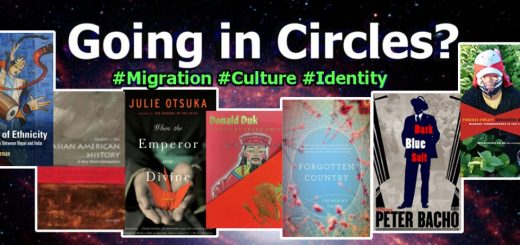

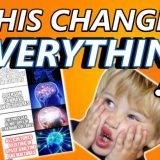
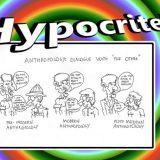
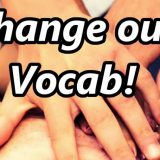
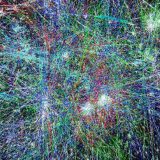

Your article is a valuable resource for anyone interested in this topic. I wish the article receives many views and shares from the community. Explore 77bet.football to savor moments of fun and engaging entertainment.
It’s fascinating to revisit how we approach research for everyday assignments, especially in light of the advancements in AI. Tools like DeepSeek, accessible via https://deepseekdeutsch.io/, offer new avenues for information retrieval and synthesis that could significantly impact how we “re-evaluate research” today, making the process potentially more efficient and insightful than in 2017.
This article on re-evaluating research for everyday assignments is incredibly relevant, especially with the tools we have today. It truly highlights the need to adapt our research approaches. I often think about how a tool like ChatGPT at https://gptonline.ai/ could assist in the initial brainstorming or synthesis phases, allowing students to then focus more deeply on critical evaluation and analysis, rather than just information gathering.
i love u
gk88 sân chơi giải trí trực tuyến hàng đầu, đa dạng sản phẩm và đầy hấp dẫn. Chúng tôi mang đến trải nghiệm mượt mà, dịch vụ chuyên nghiệp và bảo mật tuyệt đối. Khám phá ngay gk88 để tận hưởng sự khác biệt.
GK88 da va dang khang dinh vi the la dia chi dang tin cay cho cac tin do ca cuoc tai Viet Nam va quoc te.
Trải nghiệm thế giới giải trí đẳng cấp tại sun52s.com với hàng loạt tính năng hấp dẫn, hỗ trợ đa nền tảng.
33wins.store là sự lựa chọn hoàn hảo cho những ai đam mê giải trí trực tuyến, với kho trò chơi phong phú và hệ thống bảo mật an toàn tuyệt đối.
s666a.co – Trải nghiệm tuyệt vời ngay hôm nay: Khám phá ngay S666a.co để tận hưởng những khoảnh khắc giải trí đỉnh cao với vô vàn ưu đãi hấp dẫn.
viralmeister.com là địa chỉ tin cậy cho cộng đồng với nhiều tính năng dễ sử dụng và dịch vụ hỗ trợ tận tâm. Chúng tôi cam kết mang đến trải nghiệm trực tuyến hoàn hảo và thú vị nhất.
google:suggestsubtypes, mọi cá cược đều là cơ hội! Với các trận đấu thể thao đỉnh cao, casino sôi động, và tỷ lệ cược hấp dẫn, chúng tôi mang đến cho bạn trải nghiệm không thể nào quên. Hãy gia nhập ngay hôm nay!
Gia nhập qh88 ngay hôm nay – Cơ hội chiến thắng đang chờ đón bạn! Với thiết kế giao diện đơn giản, dễ sử dụng và dịch vụ chăm sóc khách hàng chuyên nghiệp, QH88 mang đến một trải nghiệm cá cược thú vị và an toàn. Hãy bắt đầu hành trình của bạn với chúng tôi và tận hưởng những lợi ích tuyệt vời từ các chương trình khuyến mãi và phần thưởng hấp dẫn!
Chào mừng đến với rwin – Nơi bạn có thể trải nghiệm những trò chơi cá cược đa dạng, đỉnh cao và những cơ hội thắng lớn. Tham gia ngay để khám phá thế giới giải trí sôi động và các phần thưởng hấp dẫn!
Xin chào bạn! Hãy gia nhập cộng đồng https://79king.energy ngay hôm nay để tận hưởng một thế giới cá cược trực tuyến tuyệt vời. Chúng tôi cung cấp nhiều loại hình trò chơi từ thể thao đến casino trực tuyến, mang đến cho bạn những giây phút giải trí đầy kịch tính và cơ hội nhận thưởng hấp dẫn.
Chào mừng bạn đến với hubet – Nơi mang đến những trải nghiệm cá cược đỉnh cao và giải trí không giới hạn. Hãy tham gia ngay để cảm nhận sự khác biệt!
Chào bạn, tại QH88, chúng tôi cam kết mang đến những trò chơi thú vị và tỷ lệ cược cực kỳ hấp dẫn.
Chào mừng bạn đến với QH88 – Nơi mang đến những trải nghiệm cá cược tuyệt vời và đầy hấp dẫn!
Lu88 là nhà cái uy tín với lịch sử hình thành vững chắc, cung cấp kho game đa dạng từ cá cược thể thao, casino, bắn cá đến slot. Giao diện hiện đại, thân thiện giúp trải nghiệm mượt mà. Đội ngũ CSKH 24/7 luôn sẵn sàng hỗ trợ, đảm bảo dịch vụ tốt nhất cho người chơi. Website lu88 chính thức: https://lu88.rocks/
VM88 là nhà cái uy tín với lịch sử phát triển vững chắc, mang đến sân chơi cá cược chất lượng cao. Hệ thống đa dạng game từ thể thao, casino đến slot hấp dẫn. Dịch vụ CSKH chuyên nghiệp, hỗ trợ 24/7. Giao diện hiện đại, mượt mà trên mọi thiết bị, tối ưu trải nghiệm người chơi.
Website: https://vm88.world/
Chào mừng bạn đến với tin88 – Nơi hội tụ của những trò chơi giải trí đỉnh cao! Tin88 mang đến cho bạn trải nghiệm cá cược đa dạng và an toàn với nhiều trò chơi hấp dẫn, từ thể thao đến casino trực tuyến. Chúng tôi cam kết đem lại cho bạn những giây phút thư giãn và chiến thắng đầy phấn khích!
Khám phá km88 ngay hôm nay! Nhà cái uy tín với các lựa chọn cược phong phú, từ thể thao đến casino trực tuyến, giúp bạn thỏa mãn đam mê và giành chiến thắng lớn.
Chào mừng bạn đến với hubet – Nơi giải trí thể thao và casino đỉnh cao! Tại Hubet, chúng tôi cam kết mang đến cho bạn những trải nghiệm chơi game chất lượng, an toàn và hấp dẫn nhất. Hãy cùng khám phá thế giới cược thú vị ngay hôm nay!
Chào bạn đến với hq88, nơi hội tụ những trò chơi giải trí thú vị và cơ hội nhận thưởng hấp dẫn.
https://qh88fe.com/ đã làm rất tốt trong việc kết hợp giữa chất lượng dịch vụ, sự đa dạng trong các trò chơi và tính năng giao diện. Tất cả đều được thiết kế nhằm mang đến cho người chơi một môi trường cá cược lý tưởng, nơi mà sự tiện lợi, an toàn và chất lượng được đặt lên hàng đầu. Nhà cái này không chỉ đơn thuần là một nền tảng cá cược mà còn là một người bạn đồng hành đáng tin cậy của những ai đam mê cá cược trực tuyến.
Chào bạn đến với thế giới cá cược tại abc8! Chúng tôi cung cấp một môi trường chơi game chuyên nghiệp và minh bạch, với nhiều trò chơi hấp dẫn. Đừng ngần ngại đăng ký và bắt đầu hành trình chiến thắng ngay hôm nay!
Chào mừng đến với hướng dẫn 123b! Nơi hội tụ những trò chơi cá cược trực tuyến hấp dẫn, an toàn và dễ dàng. Hãy tham gia ngay để trải nghiệm những giây phút giải trí tuyệt vời!
https://qh88lk.net/ là cổng game uy tín với nhiều năm phát triển, khẳng định vị thế trên thị trường. Kho game đa dạng từ thể thao, casino, slot game đến bắn cá hấp dẫn. Giao diện hiện đại, tối ưu trên mọi thiết bị. Đội ngũ CSKH chuyên nghiệp, hỗ trợ 24/7 nhanh chóng và tận tâm.
Chào mừng đến với https://ww88com.world/! Là một trong những nhà cái uy tín và đáng tin cậy nhất trên thị trường, ww88com.world mang đến cho bạn một trải nghiệm chơi game trực tuyến tuyệt vời với nhiều trò chơi hấp dẫn, khuyến mãi hấp dẫn, và dịch vụ khách hàng chuyên nghiệp. Hãy gia nhập ngay hôm nay để cảm nhận sự khác biệt!
Để tri ân khách hàng, C54 triển khai nhiều chương trình khuyến mãi độc quyền. Thành viên mới có thể nhận thưởng tối đa 2.000.000 VNĐ khi đăng ký và nạp tiền lần đầu. Ngoài ra, nhà cái còn có chương trình hoàn trả cược xâu lên đến 2.888.000 VNĐ, giúp giảm thiểu rủi ro cho người chơi. Đặc biệt, C54 cung cấp ưu đãi tặng 38% cho lần chuyển tiền đầu tiên và thưởng tối đa 30% cho lần nạp thứ ba, tạo điều kiện thuận lợi để người chơi gia tăng vốn cược và trải nghiệm dịch vụ một cách trọn vẹn.
Chào mừng bạn đến với Sbotop – Cổng game cá cược trực tuyến toàn diện! Với Sbotop, bạn sẽ được trải nghiệm những trò chơi cá cược chất lượng từ thể thao, sòng bài trực tuyến cho đến các game slot đa dạng. Chúng tôi luôn đặt sự hài lòng của bạn lên hàng đầu, để mỗi lần tham gia đều là một kỷ niệm đáng nhớ.
Chào mừng bạn đến với https://bsports.tech/ – nơi hội tụ đỉnh cao cá cược thể thao và giải trí trực tuyến! Trải nghiệm nền tảng uy tín, bảo mật và hấp dẫn hàng đầu châu Á ngay hôm nay!
FB88 – Nơi niềm tin bắt đầu, chiến thắng bền lâu! Với giấy phép hợp pháp, giao dịch siêu tốc, tỷ lệ cược cực cao và nhiều trò chơi hot hit, chúng tôi là lựa chọn số 1 của hàng triệu người chơi.
Trải nghiệm cá cược an toàn và minh bạch tại PG88 Chúng tôi luôn bảo vệ quyền lợi của bạn và đảm bảo một môi trường chơi game công bằng, không gian cho những chiến thắng lớn.
Chào mừng bạn đến với BWING – Sân chơi cá cược hàng đầu châu Á! Trải nghiệm ngay thế giới cá cược đỉnh cao tại BWING – nơi hội tụ những trò chơi hấp dẫn, tỷ lệ kèo siêu tốt và dịch vụ chăm sóc khách hàng 24/7!
QH888 nền tảng cá cược uy tín với nhiều năm phát triển, khẳng định vị thế trên thị trường. Kho game đa dạng từ thể thao, game bài, xổ số, slot game đến bắn cá hấp dẫn. Giao diện hiện đại, tối ưu trên mọi thiết bị. Đội ngũ CSKH chuyên nghiệp, hỗ trợ 24/7 nhanh chóng và tận tâm.
Đừng bỏ lỡ cơ hội trở thành cao thủ săn hũ tại https://nohu90i.net/ – nền tảng game đổi thưởng hàng đầu, được hàng triệu người chơi tin chọn mỗi ngày!
Khám phá cơ hội tại https://8xbetlx.com/ – Chúng tôi mang đến cho bạn những trò chơi casino trực tuyến chất lượng cao, tỷ lệ trả thưởng hấp dẫn và dịch vụ khách hàng chuyên nghiệp. Đừng bỏ lỡ cơ hội đổi đời!
e2bet – Nhà cái cược Đá Gà Thomo uy tín số 1 Châu Á. Bên cạnh đó, nhà cái còn cung cấp hàng loạt trò chơi hấp dẫn như thể thao, casino, bắn cá và game bài đổi thưởng. Giao diện hiện đại, tỉ lệ thắng cao, bảo mật an toàn tuyệt đối. E2BET hứa hẹn mang đến trải nghiệm đỉnh cao và cơ hội thắng lớn mỗi ngày!
https://v7bett.net – Nhà cái hàng đầu cho đam mê mê chiến thắng lớn! Với tỷ lệ hấp hấp dẫn, khuyến mãi cực khủng và nạp rút siêu tốc, v7bett.net là điểm lý tưởng cho những ai yêu thích cá độ thể thao, casino trực tuyến và trò chơi đổi thưởng.
Khám phá https://hi88.casino – nhà cái đáng tin cậy, nơi bạn có thể mua sức mạnh trao đổi, game bài, casino trực tuyến và nhiều thứ khác nữa!
Chào mừng bạn đến với https://ok9393.com/– thế giới giải trí đỉnh cao dành cho người yêu thích cá hàng ! Hãy cùng khám phá những hấp dẫn , tỷ lệ cực tốt và dịch vụ chuyên nghiệp ngay hôm nay!
Chào mừng bạn đến với https://dauphathuongkhung.org/ – Thế giới cá chất cao đang chờ bạn khám phá!chơi siêu giành mỗi ngày! Hàng trăm trò chơi, thưởng siêu khủng, cơ hội thắng lớn mỗi ngày!
https://hi88.casino/ – Nhà cái hàng đầu châu Á, nơi bạn không chỉ chơi mà còn trải nghiệm những phút giây gay cấn, hồi hộp và đầy cảm xúc!
Nhà Cái Uy Tín Thuộc Top Đầu Việt Nam Mới Nổi Tiếng là nơi tập hợp các địa chỉ nhà cái cá cược đáng tin cậy hàng đầu, được lựa chọn dựa trên các phân tích khách quan từ các chuyên gia. Người chơi sẽ được hướng dẫn chọn lựa những nhà cái uy tín với tính thanh khoản nhanh, không giam tiền hay khóa tài khoản người chơi.
Chào mừng bạn đến với https://8live3.com/ – Sân chơi cá cược đỉnh cao! Tại 8LIVE, chúng tôi cam kết mang đến cho bạn trải nghiệm cá cược thể thao, sòng bài trực tuyến và game bài uy tín, minh bạch và an toàn tuyệt đối. Hãy tham gia ngay để khám phá thế giới giải trí đẳng cấp quốc tế cùng nhiều phần thưởng hấp dẫn đang chờ đón bạn!
https://qh88lode.com/ thu hút hàng nghìn game thủ tham gia đặt cược và rút tiền thắng cược
HDBET mang đến không gian giải trí đỉnh cao, nơi người chơi có thể thỏa sức khám phá các thể loại cá cược hiện đại cùng hệ thống bảo mật tiên tiến.
Chỉ cần truy cập một lần SUT88 , cả thế giới giải trí đa sắc màu sẽ mở ra trước mắt bạn với hàng loạt trò chơi lôi cuốn. Không cần cài đặt rườm rà, nền tảng luôn sẵn sàng phục vụ bạn mọi lúc — từ những phút nghỉ ngơi ngắn ngủi đến khoảng thời gian thư giãn cuối ngày.
K9BET khẳng định vị thế là nền tảng giải trí trực tuyến hàng đầu, ứng dụng công nghệ hiện đại cùng hệ sinh thái game phong phú, mang đến trải nghiệm cá cược trọn vẹn, an toàn và linh hoạt mọi lúc mọi nơi.
CAT368 – dẫn đầu xu hướng giải trí trực tuyến với nền tảng công nghệ tiên tiến và kho game đa dạng, mang đến trải nghiệm cá cược toàn diện, an toàn tuyệt đối và linh hoạt trên mọi thiết bị, mọi thời điểm.
Đam mê những pha bóng nghẹt thở và những cú lật kèo kịch tính? SUT88 – chính là điểm đến lý tưởng với giao diện trực quan, cập nhật kèo siêu tốc và hàng trăm lựa chọn cá cược hấp dẫn. Tham gia ngay hôm nay để nhận ưu đãi siêu hot dành riêng cho người chơi mới!
K9BET khẳng định vị thế là nền tảng giải trí trực tuyến hàng đầu, ứng dụng công nghệ hiện đại cùng hệ sinh thái game phong phú, mang đến trải nghiệm cá cược trọn vẹn, an toàn và linh hoạt mọi lúc mọi nơi. Hãy đến trải nghiệm k9bet ngay thôi
CAT368 – dẫn đầu xu hướng giải trí trực tuyến với nền tảng công nghệ tiên tiến và kho game đa dạng, mang đến trải nghiệm cá cược toàn diện, an toàn tuyệt đối và linh hoạt trên mọi thiết bị, mọi thời điểm. Hãy đến cat368 nhận khuyến mãi ngay nhé
https://bong88vn.design/ là nhà cái cá cược bóng đá trực tuyến hàng đầu, cung cấp tỷ lệ kèo châu Á, châu Âu và tài xỉu cực hấp dẫn. Nền tảng giao diện thân thiện, bảo mật cao, cập nhật kèo liên tục và hỗ trợ người chơi 24/7 với tốc độ rút tiền nhanh chóng.
Cá cược thể thao, EsportEsports, hấp dẫn chỉ có tại https://jbo.forex/ – nơi hội tụ của đam mê, cơ hội chiến thắng lớn và dịch vụ khách hàng chuyên nghiệp hàng đầu.
SBOTOP là một trong những nhà cái cá cược trực tuyến hàng đầu tại châu Á, nổi tiếng với đa dạng sản phẩm từ cá cược thể thao, game bài trực tuyến, game slots đến các trò chơi eSports. Website: https://sbotop01.com/
PG88 – lựa chọn hoàn hảo cho những tín đồ đam mê cá cược trực tuyến, nơi hội tụ trải nghiệm mượt mà, bảo mật tối ưu cùng kho trò chơi đỉnh cao, hấp dẫn bậc nhất hiện nay
GK88 – nhà cái uy tín hàng đầu, cung cấp đa dạng trò chơi cá cược, tỷ lệ cược hấp dẫn, giao diện dễ dùng, bảo mật cao và hỗ trợ khách hàng 24/7.
onbet bet hướng đến mục tiêu xây dựng một hệ sinh thái giải trí bền vững, vừa mang tính giải trí cao vừa đảm bảo quyền lợi cho mọi thành viên.
you’re in point of fact a good webmaster. The website loading pace is
amazing. It seems that you are doing any unique trick.
In addition, The contents are masterwork.
you have done a fantastic job in this matter!
UU88 là nhà cái trực tuyến hàng đầu, cung cấp đa dạng sản phẩm giải trí như cá cược thể thao, casin trực tuyến, slot game, bắn cá và tài xỉu. Với công nghệ bảo mật tiên tiến, UU88 mang đến môi trường chơi minh bạch, an toàn và hiện đại cho người dùng. Website: https://uu88.institute/
Thanks for finally writing about > Re-evaluating Research for Everyday Assignments – Tristan's A-Pop Blog < Loved it!